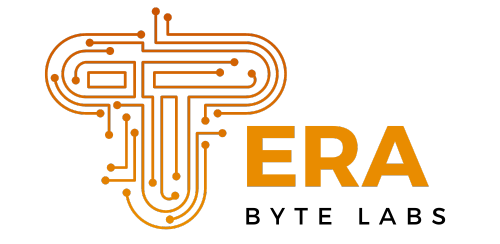Let’s start with the glossy dream: a tanned 20-something sipping cold brew on a beach in Bali, grinning while “passive income” floods their phone. “Make $1,000 a day while you sleep.” You’ve seen it. You’ve probably clicked it.
Here’s the thing—most of it is a highlight reel, not a how-to. These viral snapshots often leave out the unpaid grind, the nights debugging websites, the low-view content, and the rejected pitches. They show you the destination but skip the awful layovers.
Why “Easy Money” Isn’t Always Easy—or Even Money
You can lose weeks building a dropshipping store that never converts. Or spend $200 on ads chasing a $30 affiliate payout. What’s marketed as “easy” usually means low barrier to entry, not low effort.
Even methods with built-in automation need consistent input. Set-it-and-forget-it only works after months of test-it-and-fix-it. Passive income comes from active understanding.
Passive Income, Automation Riches, and Overnight Success
Passive income exists—but it starts actively. Automation is real—but worthless without structure. And overnight success? It’s often the result of years of refining systems behind the scenes.
And when something does “blow up,” that’s usually when the real work starts. Managing scale, customer support, copycats, and costs are problems people rarely mention when they flash earnings screenshots.
Scalable Effort ≠ No Effort
Digital leverage means you don’t have to work harder for every dollar—but you do have to work smarter to get the first few. People love the idea of infinite scale, but without an offer people want or a system to deliver it, scale is just stress.
The Honest Requirements: Time, Testing, Trust
Here’s what that looks like practically:
- Time to study audiences, algorithms, and trends
- Testing different formats, offers, price points
- Trust built with platforms (avoid getting banned), with audiences (no shady pitches), and with yourself (not quitting too early)
This combo of learning, experimenting, and showing up daily makes all the difference. Not motivation. Not virality. Habits.
Why Most People Quit Too Early
Most give up because they set impossible expectations. They hear about someone making $5,000 in a weekend and assume they’re failing if they don’t. But that person likely went through 100 pieces of trial content and months of silence before hitting their stride.
What works? Set a tiny first goal—$10 online. Then $50. Then $100 a month. You’ll build stamina. Then systems. Then income.
The Internet Pays in Leverage, Not Labor
People new to online income often carry offline logic into digital spaces. They think in hours, tasks, and effort. But the internet has different rules—it doesn’t pay by the hour. It pays by leverage.
What Is Leverage, Really?
Leverage is the ability to multiply output without multiplying input. Instead of getting paid once for an hour of work, you build something that works for you—repeatedly.

If you write an ebook, it can sell 10,000 times without you writing it again. If you publish a YouTube video, it might earn you ad revenue for years. If you create a newsletter that others want to sponsor, your list becomes your leverage.
Create Once, Earn Often
This is where online income shines. Done right, one effort can pay you over and over:
- An SEO-optimized article with affiliate links
- A mini course on Skillshare or Teachable
- A paid Substack with niche readers
- A Chrome extension that solves one micro-frustration
These assets don’t guarantee money, but they create potential. And that’s where freedom begins.
A Few Case Snapshots
Let’s look closer:
- TikTok Seller: Shares weird gadgets with personality. The link-in-bio isn’t just for clout—it’s tracked. Each sale kicks back a commission.
- YouTube Gear Reviewer: Focuses on low-competition search terms. Doesn’t care about virality, just conversion.
- Niche Newsletter Owner: 1,000 subs, but laser-focused on one niche (e.g., freelance legal updates). Attracts niche advertisers happy to pay $100 per issue.
These folks didn’t start with a big audience—they built one around value.
The Psychology of Scale
It’s easy to get caught up in big numbers. “If I had 100K followers, I’d be rich.” Not true. Plenty of people with 1,000 fans are making more than someone with 50,000. Why? Relevance and trust beat reach.
Instead of chasing fame, focus on compounding small wins:
- $3 from a template
- $10 from a referral
- $25 from a client tip
These stack, especially if the delivery mechanism is repeatable.
Helpful Tools (That Don’t Require a Degree in Coding)
You don’t need to learn Python or go to coding bootcamp to make the internet work for you.
- ConvertKit: For email monetization
- Thrivecart: For digital product sales
- Ko-fi: For small creators and tips
- Trello + Notion: To organize your workflows
- Beehiiv: To monetize a newsletter even with low subs
Tech isn’t the problem. Commitment is.
The Easy Wins That Aren’t Scams
Scams exist. But not everything that looks like an “online hustle” is one. The real challenge isn’t finding something legit—it’s avoiding analysis paralysis while sifting through it all.
What Works Without 10K Followers or a Legal Department?
You don’t need followers, capital, or even a formal business. You need:
- Wi-Fi
- A willingness to learn
- A simple system to follow daily
Let’s break down 5 entry-level methods that don’t require reinventing the wheel:
1. Freelance Gigs (with AI Support)
Offer to write summaries, polish CVs, generate blog intros, or even prep ideas for social media. Clients still want human oversight, but AI can speed you up.
Use:
- Fiverr for fast tasks
- Upwork for bigger projects
- Reddit job boards for niche gigs
Charge reasonably, overdeliver, and create re-usable templates to scale.
2. Selling Digital Goods
This one’s hot—and for good reason. You make something once, and sell it forever. Even better if it solves a micro-problem.
Start small:
- “Sunday Reset” planners for burnout
- Notion dashboards for ADHD
- Job hunt trackers
- AI prompt bundles
Upload on Etsy, Gumroad, or LemonSqueezy. Promote using TikTok tutorials or Pinterest pins.
3. Online Surveys and Analysis Platforms
You won’t get rich here, but they’re solid for stacking pocket cash.
- Use a dedicated inbox
- Install Honeygain or Swagbucks on a secondary device
- Create batching sessions: 1 hour a day = small but real gains
Smart folks combine this with other tasks. Passive stacking is the name of the game.
4. Affiliate Links + Micro-Content
Start with a product you actually use. Review it in a Reddit comment, a tweet, or a quick screen recording.
Use:
- Amazon Associates
- PartnerStack (for SaaS tools)
- CJ Affiliate (for niche sites)
Write a simple blog with Google Sites or Carrd, link your stuff, and drip traffic slowly.
5. Casino Earnings and Niche Risk-Rewards
Some folks hustle bonuses and spins. These aren’t scams—but must be handled like stock trades, not entertainment.
Promotions can be flipped if you’re disciplined. For instance, playing free spins at Raging Bull slots is used by some as a low-risk entry point for real cash wins—if tracked.
Set a time cap. Use spreadsheets. Withdraw often. Don’t let it become an addiction.
How to Stack These Without Burnout
Start with the one you’re naturally curious about. Build a rhythm. Automate where possible. Track everything—even if it’s $3. That builds confidence.
Don’t chase scale until you’ve nailed consistency.
The Other Side of Online Income
Everyone talks about making money. Few talk about keeping it. Online income is slippery. You could make $500 this week—and see only $300 hit your account.
The Enemies of Online Income
Let’s name them:
- Fees: PayPal can take 3–5%. Crypto transfers might sting too.
- Delayed payouts: Some affiliates hold your cash for 30+ days.
- Chargebacks: Sell a digital course? Some folks refund after they consume.
- Tax surprises: Freelance income often isn’t taxed upfront.
- Bad platforms: Shady sites vanish overnight.
So, profit is not just revenue—it’s revenue minus all of that.
Financial Hygiene for Digital Hustlers
Start clean. Even if you’re just doing $100 a month:
- Separate email for money stuff
- Use a Google Sheet to track dates, methods, and payout timelines
- Set up 2FA on wallets and PayPal
- Learn how to spot phishing (especially if you’re selling anything)
If you ever scale up, this prep will save your sanity.
Platforms and Wallets to Consider
- Wise: Cheap transfers
- Payoneer: Freelancers love it
- Skrill: Useful for international offers
- Ko-fi + Stripe: Clean, no-fuss income for creators
Crypto wallets like MetaMask are useful—but only after you’re comfortable with Web3 basics. Don’t dive in blind.
Mindset for the Long Game
Making money online is not about one method. It’s about learning the rhythm of the web:
- Traffic in → Offer out → Cash in → Store or grow it
Repeat that cycle, keep records, avoid hype, and you’ll be ahead of 90% of the “gurus.”


